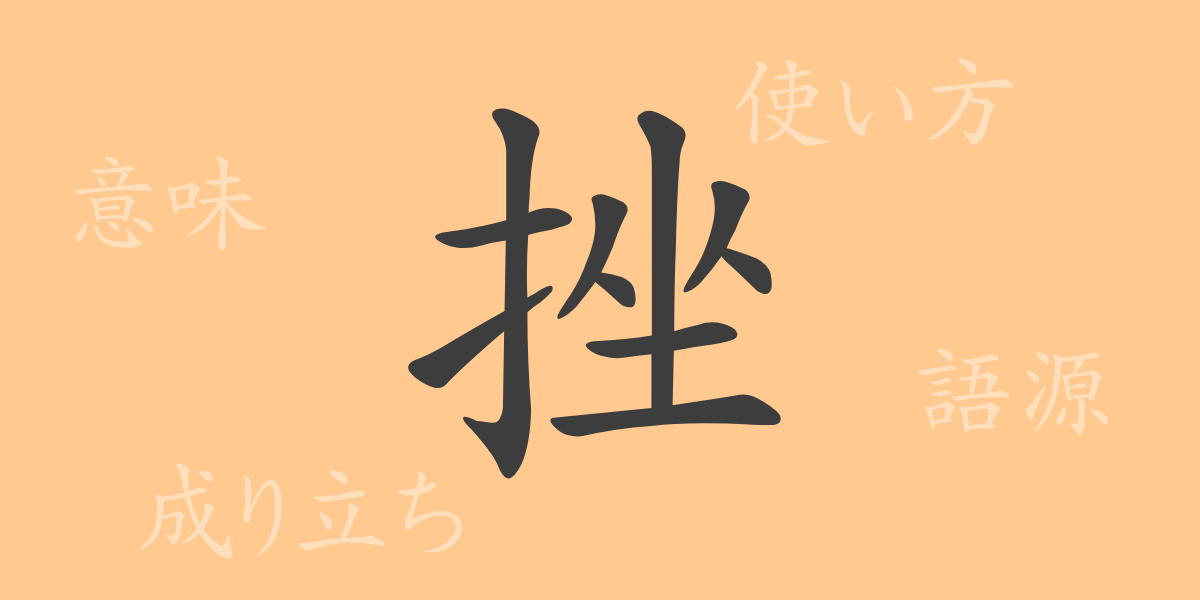The richness of the Japanese language is partly due to its extensive kanji characters. Among them, the kanji “挫” (za) is one that we often encounter in our daily lives. In this article, we focus on the kanji “挫” (za), delving into its etymology, meanings, usages, and idioms. By understanding the history and culture hidden behind the words, you can deepen your understanding of Japanese.
Etymology of 挫 (za)
The kanji “挫” (za) originated in ancient China. This kanji is composed of the radical “扌” (tehen, meaning hand) and “坐” (za, indicating sound). Originally, “坐” (za) meant “to sit,” but it evolved to mean “to break” or “to bend.” From this combination, the meaning “to break with the hand” or “to change shape by applying force” emerged, leading to the action “挫く” (kujiku, to sprain).
Meanings and Usages of 挫 (za)
“挫” (za) can refer to the physical act of bending or breaking something, but it is generally used metaphorically. Particularly, the idiom “挫折” (zasetsu) is widely used to describe the failure of plans or hopes, or such an experience. It is also used to express mental setbacks, such as when one’s spirit is broken, in the form “挫ける” (kujikeru, to be disheartened).
Reading, Stroke Count, and Radical of 挫 (za)
How is the kanji “挫” (za) read and structured in Japanese?
- Reading: In the on’yomi reading, it is read as “ザ” (za), and in the kun’yomi reading, it is read as “くじ.く” (kujiku) and “くじ.ける” (kujikeru).
- Stroke count: It has a total of 10 strokes.
- Radical: The radical is 手 (tehen, meaning hand).
Idioms, Phrases, and Proverbs Using 挫 (za) and Their Meanings
There are many idioms, phrases, and proverbs in Japanese that include “挫” (za), adding depth to the language. Here are a few examples:
- 挫折 (ざせつ, zasetsu): The failure of goals or plans midway.
- 挫折感 (ざせつかん, zasetsukan): The feeling of disappointment or helplessness when a goal is not achieved.
- 意気挫折 (いきざせつ, ikizasetsu): The discouragement of one’s enthusiasm.
- 挫ける (くじける, kujikeru): To lose one’s ambition or momentum; to be disheartened.
- 挫く (くじく, kujiku): To interrupt something; to thwart someone’s will.
Conclusion on 挫 (za)
The kanji “挫” (za) holds more than just a literal meaning. It symbolizes the experiences of setbacks and challenges in life, and the strength to overcome them. By understanding and using this kanji, you can appreciate the depth of words and richness of expression. We hope this exploration of “挫” (za) allows you to rediscover the beauty and complexity of the Japanese language.

























